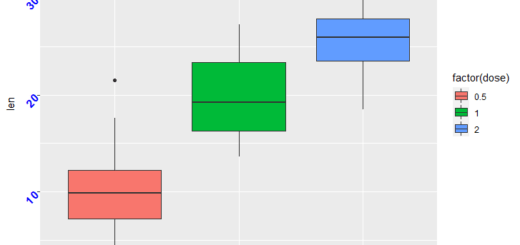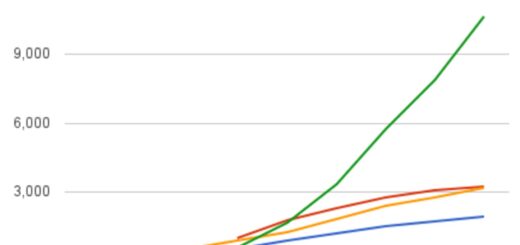Process of a typical Data Analyst Interview
Process of a typical data analyst interview, Use this guide to help you get ready for your interview and land your dream job if you’re looking for your first data analyst job or are trying to advance in your career.
There are typically up to 100,000 job openings for data analysts worldwide, with prominent industries including finance, healthcare, and entertainment showing high demand.
Use this guide to help you get ready for your interview and land your dream job if you’re looking for your first data analyst job or are trying to advance in your career.
Frequently Asked Data Science Interview Questions »
Process of a typical data analyst interview
The following steps are frequently included in the interview process for data analysts.
HR Interview: A screening call with a recruiter will be your first step. During this call, the recruiter will learn more about you, your experience, your interests, and your expected remuneration.
Hiring Manager Interview: The recruiting manager will typically be on the ensuing call. They may enquire further about your relevant experience and the reasons for your interest in the job.
Technical Screen: This section is unique to roles as data analysts. The technical interview may include SQL and Python test-taking questions.
On-site interview: The last step usually focuses on your business knowledge.
After you have completed these essential components of the interview process, you might have to wait a while before receiving an offer. While there may be an opportunity for input, if you haven’t heard anything after a few weeks, it’s not rare to get ghosted.
These actions could be intimidating and strange. technical display? Manager of hiring interview? To help you better understand what to expect and how to prepare, below are some typical questions that will be asked of you during both general and technical interviews.
Best Books for Data Analytics »
General data analyst interview questions:
Why are you the best applicant for the position?
Even while this question may seem general, keep in mind that the interviewer wants to learn more about you as a data analyst.
So take into account your experience with data analysis, what initially piqued your interest, your prior experiences, and the reasons you are applying for this particular position.
How did you handle a difficult data analysis project, please?
They are requesting information on how you overcame difficulties and providing you the chance to demonstrate your abilities. Include both your strong points and weak points.
Be truthful about what went wrong or what you struggled with, and make an effort to emphasize any skills that are specified in the position’s job requirements.
What kind of data have you handled?
Please be as descriptive as you can in response to this question. Pay attention to the quantity and type of data you have handled, whether from prior employment or your own projects and programs.
Your ability to manage massive, complex data will be a major consideration for many hiring managers.
Querying the data analysis procedure
How does data cleaning work? What is it?
As a data analyst, a significant portion of your workday is spent cleaning data. Here’s your time to demonstrate to the interviewer how you deal with issues like missing data, duplicates, outliers, and more.
Make careful to discuss its significance and how you handled it in prior initiatives.
How do you explain technical ideas to non-technical people?
A significant portion of data analysis entails arranging your findings into a narrative and making it understandable to audiences of all technical and non-technical backgrounds.
Your soft talents, such as storytelling and communication, will come in handy here. Give instances of when you’ve communicated data-driven insights to audiences. These could be written communications inside your portfolio or shareholder presentations.
How would you evaluate the effectiveness of our business?
When the interviewer asks a question about the business, seize the chance to demonstrate your understanding of their mission and how you complement it.
Think about the insights your analytic abilities may provide that are unique to this firm in particular, keeping its objectives and difficulties in mind.
How to Become a Data Science Master? Data Science Tutorial
Which data analytics program are you familiar with, in terms of technical knowledge?
What products did you previously utilize, and what certifications do you hold? How long have you been using software of this type? With the aid of this question, the interviewer can determine your degree of experience and the potential need for more training for the open position.
In your preparation, discuss any software you have used that is mentioned in the job description, as well as how you have utilized it at various phases of the data analysis process. To stay on course, use wording that is pertinent.
Software options include Tableau, R, Power-BI, and Python. If you’re not sure about things, be sure to try some more instructions in the programs.
What statistical expertise do you have?
This question typically asks if you have a fundamental grasp of statistics and how you have applied them in the past when working on data analysis projects.
Make sure to read up on the following ideas if you are an entry-level employee and are not familiar with statistical techniques:
- Standard deviation
- Variance
- Regression
- Sample size
- Descriptive and inferential statistics
- Mean
Process of a typical data analyst interview
If you do have some experience, make sure to explain how statistical analysis relates to your company’s objectives. Give examples of the different statistical computations you’ve done in the past, along with the business insights they produced.
What does this phrase mean?
You’re being asked to comprehend the language used in analytics. So familiarise yourself with the following:
- Normal distribution
- Data wrangling
- KNN imputation method
- Clustering
- Outlier
- N-grams
- Statistical model
Examine the company: Find out what the company’s issues are or could be. What data issues might they be having right now, for instance? Who are their intended customers? Plan how you might use this study and your skills to solve these issues.
Examine the interviewing procedure: Take the chance to ask the recruiter for guidance at the beginning of the process. Look for interview experiences and tips utilizing chat boards or resources like Blinds.
Choose your strongest qualities: During the interview process, some meetings will place more emphasis on particular qualities than others.
For instance, you would need to demonstrate your knowledge of database languages like SQL in a technical interview. Consider your abilities as both distinct and blended. Prepare to talk about business sense, soft skills, analytics, and visualization as well as technical skills.
Before: Pay close attention to the questions being posed to you. Interviewers may pose generic inquiries like “tell me about yourself,” but keep in mind that every query ultimately leads to data analysis.
After your interviews:- Send thank-you emails to the hiring managers and recruiters. To get feedback or to ask any questions you might have missed during the interview, take advantage of the option to get in touch with them thereafter.
Have you found this article to be interesting? We’d be glad if you could forward it to a friend or share it on Twitter or Linked In to help it spread.









